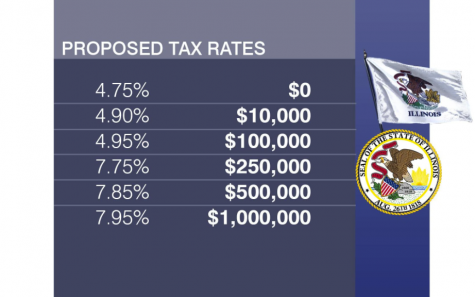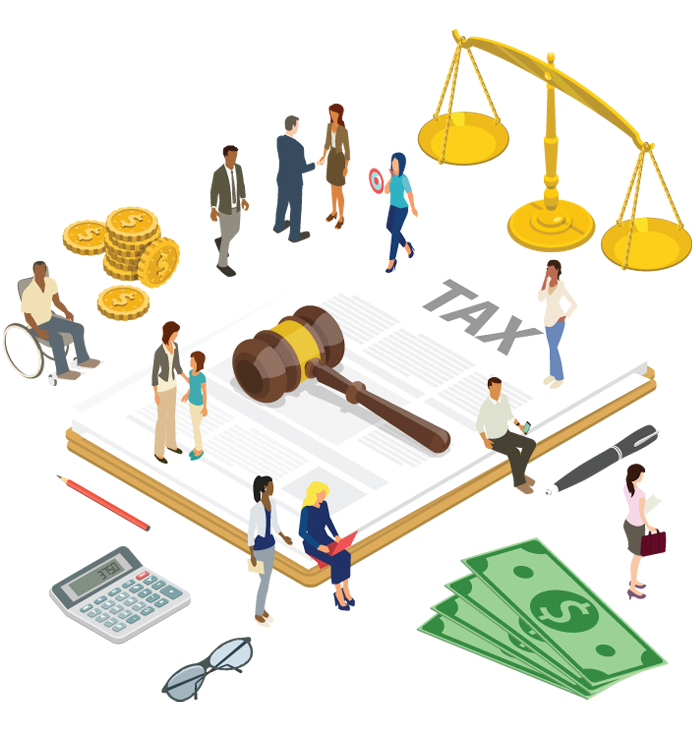The Fair Tax Amendment
Image credit: https://3pf92a428h7y2o2e1d3olqk2-wpengine.netdna-ssl.com/wp-content/uploads/2020/01/fair-tax-div-1.png
October 25, 2020
This year on the ballot, Illinoisans will be choosing whether or not to change the current income tax system from a flat tax to a graduated tax. The Illinois Fair Tax amendment calls for those who have higher incomes to pay a higher percentage of the tax in comparison to those with lower incomes.
The specific language on the ballot reads:
“The proposed amendment grants the State authority to impose higher income tax rates on higher income levels, which is how the federal government and a majority of other states do it. The amendment would remove the portion of the Revenue Article of the Illinois Constitution that is sometimes referred to as the “flat tax,” that requires all taxes on income to be at the same rate. The amendment does not itself change tax rates. It gives the State the ability to impose higher tax rates on those with higher income levels and lower income tax rates on those with middle or lower income levels. You are asked to decide whether the proposed amendment should become a part of the Illinois Constitution.”
The proposed tax rates based on income are shown below:

As evident through the image above, these rates progressively increase with income. In comparison, the current flat income tax rate is 4.95%. It is important to reiterate that the proposed rates are separate from the actual amendment on which Illinois residents will be voting. All the amendment does is lift the Illinois constitution’s prohibition of a graduated income tax. This will leave legislatures to then adopt rates of their choosing, likely close to the ones pictured above.
Governor J.B. Pritzker and other proponents are pushing this initiative strongly to get some badly needed revenue. Supporters say that this revenue should come from those who have it and can afford to pay higher taxes in order to take some burden off of lower and middle-income Illinois residents. However, opponents of this tax change say that this will just allow lawmakers to come back and raise taxes even more in the future. Another concern is that this amendment will hurt businesses that are taxed at individual rates instead of corporate rates due to their income claims. However, advocates for the Fair Tax say that it will actually help small businesses, including those with varying earnings every year. For example, if a business does very well one year, they would pay a higher tax rate. On the other hand, if the next year the business does very poorly, then the amendment would actually protect them through a lower tax rate.
To read more about the different viewpoints and opinions, see below:
- For the Fair Tax website: https://www.voteyesforfairness.com/
- Against the Fair Tax website: https://notaxhikeamendment.com/
For more detailed information about the Fair Tax and its long and short term effects, go to https://taxfoundation.org/illinois-fair-tax/.
Sources:









